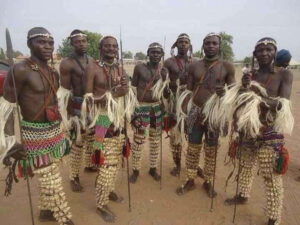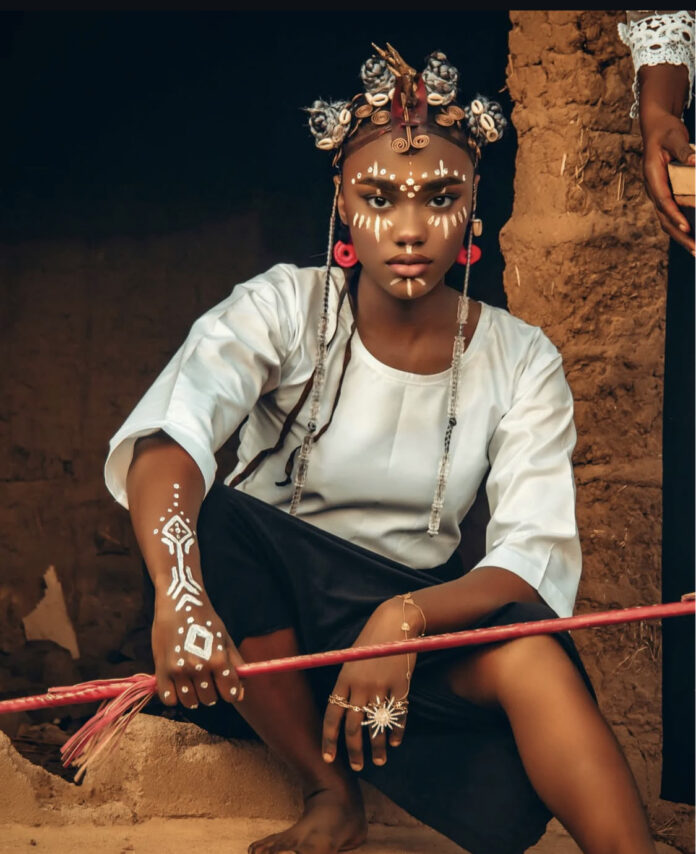The Majestic Bwatiye People: A story of bravery and unity in North-East Nigeria, by Salim Sani
The Bachama, or Bwatiye people, known as “unconquered warriors”, combine resilience with artistry, medicine with myth, and leadership with a deep respect for ancestry.
History and Origin
The Bachama trace their origins to the Gobir people of the north, a lineage shaped by migration, conflict and adaptation.
Following pressure from Tuareg incursions, and later wars from the Bornu empire, they were forced south-eastwards to what is now Adamawa.
This history of resistance is part of the Bachama self-identity: proud, independent, and conscious of external pressures. The colonial period brought treaties, subsidies, and conflict, but the Bachama preserved much of their political structure through monarchy, clans, and spiritual tradition.

Society and Economy
The Bwatiye live mainly in Numan, Lamurde, Demsa, Girei, Fufore and other parts of Adamawa State; some communities also extend into neighbouring Cameroon. Lamurde is their ancestral and spiritual home, while Numan serves as their administrative heart.
READ ALSO: Unveiling the Tangale Tribe: A fascinating glimpse into culture, and heritage
Leadership follows a monarchical system: the ‘Hama Bachama’ is the paramount ruler, drawn from one of the royal clans.
Economically, the Bachama are farmers, fishers and hunters. They cultivate crops such as maize, guinea corn, beans, cassava, and vegetables; fishing is aided by the rivers and streams that cross their lands.
Culture and Tradition
Traditional beliefs among the Bachama include strong respect for ancestors, nature spirits, and deities. Cults and shrines are maintained, especially for deities. Rituals and storytelling uphold these traditions.
The clan system is central: only adult males from the six clans are eligible for chieftaincy. Social roles, status, and political power are mediated through these clan structures. The royal houses and their selection processes preserve continuity and legitimacy.
Attires and Weddings
Bachama attire is colourful and symbolic. On ordinary days, typical dress is modest and functional, but at weddings and festivals, garments are richly decorated.
READ ALSO: The Mambila People: Proud farmers with rich heritage and enduring culture, by Salim Sani
Women use wrappers, beaded jewellery, ornate hair adornments; men wear tunics, trousers, sometimes capes or shawls, and occasionally garments that denote rank or role. Accessories such as beads are important status markers.
Weddings among the Bwatiye are communal and symbolic. The process involves emissaries from the groom’s side approaching the bride’s family. Gifts, bride price, and household goods are negotiated. The ceremony involves the community, including feasts, songs, celebration, and the symbolic union of families, not merely individuals.

Festivals and Ceremonies
The Bachama calendar is rich with festivals that stitch together agrarian cycles, spiritual beliefs and social cohesion:
Vunon Festival, also known as ‘Farai-Farai’, is a four-day event uniting Bachama communities in Demsa, Numan and Lamurde. It worships common deities, opens farming season, features wrestling, dance, offerings and colourful attire.
READ ALSO: The Jukun Tribe: Into the enduring traditions of the mighty Kwararafa Kingdom (Pictures)
Vayato Gyawana Festival is a wrestling and harvest thanksgiving festival, typically held between June and July, celebrating both physical skill and agricultural bounty.
The Kwete Annual Cultural Festival involves seven days of spiritual and cultural rites in honour of the vegetarian god ‘Homonpwa ka Puledan’, thanking the deity for the produce of the land.
Ceremonies also accompany the enthronement of rulers, funerary rites, and rites of passage.
Music and Dance
Music and dance are inseparable from Bachama cultural life. Instruments such as drums, flutes, and stringed instruments accompany stories, festivals, and rituals.
READ ALSO: Guardians of Heritage: Glance at Bolawa tribe of Fika (Video)
Singing may recount history, praise leaders, or invoke spiritual beings. Dance is rhythmic, communal, and often linked to festivals like Vunon and Vayato Gyawana, or the Kwete rites.
Wrestling is not just a sport; it is a performance, ritual, display of strength, status, and respect, especially among young men. It plays a central role during festivals. The interplay of music, dance and wrestling gives festivals their vibrancy.

Courage
The Bachama or Bwatiye people are more than a tribe; they are a living dialogue between past and present. Their history of migration, warfare, treaties and independence speaks of strength. Their culture of festivals, language, and traditional medicine reveals a community deeply rooted but able to adapt.
In telling their story, we are reminded that identity is woven from the many threads of history, beliefs, arts, economy and human relations, and that people such as the Bachama, continue to make their tapestry as time continues to walk.
Follow the Neptune Prime channel on WhatsApp:
Do you have breaking news, interview request, opinion, suggestion, or want your event covered? Email us at neptuneprime2233@gmail.com





